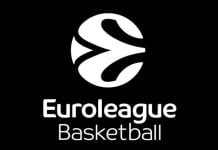As Euroleague Basketball opens its 15th season of managing the top competitions in the continent on Wednesday, the focus on progress in the future remains strong in the organization. After a summer in which the member clubs voted to transition to a new competition model in the near future, Jordi Bertomeu, the President and CEO of Euroleague Basketball, is confident that fans will soon enjoy the same great Euroleague game in a clearer, fairer and stronger structure. “It will become a true European league on the basis of Europe’s tradition of promotion and relegation,” Mr. Bertomeu said. “By not depending on what happens in other countries and leagues, there will be a natural path to reach the top competitions in Europe, giving fans and the clubs themselves a clear understanding of what it takes. I am confident that fans will enjoy an even better Euroleague and Eurocup.”
Here at the start of a new season, Euroleague Basketball is taking some big steps to shape the future. First of all, what is the objective?
“The main objective is the same as it was when Euroleague Basketball was created: to become a true European league. We have adopted several changes in the competition’s structure over these years, and all of them were consistent with this objective. More games in the most important parts of the season and greater integration between the Euroleague and the Eurocup.
“Now we have agreed with clubs and leagues to move to the ultimate structure of the league, which should form a pyramid, with the Euroleague at the top, followed by the Eurocup and the domestic leagues, and is based on the promotion and relegation between them. Basically, we would take the classic league model that works in every country and most sports to an international level.
“Even though a consensus has been reached on the concept, details are not yet defined. This season we will dedicate lots of effort to defining this and presenting a more detailed proposal to the clubs and the leagues. In a transition to this model, we will have some modifications for the 2015-16 season, which will basically affect the license allocation criteria.”
Why was there a need to change the current system?
“We believe the current structure was too complicated for fans to understand and in some cases also problematic for our clubs. The dynamic country system, although it served to increase the number of countries that got opportunities to participate in our competitions, was confusing sometimes for the fans to understand which teams would qualify for the Euroleague, since in some cases that depended on what happened in leagues from other countries. This was not good, and so we decided to find a solution that simplified it.”
What is being done to make it less complex and more fair?
“Basically, a first step will be to eliminate the dynamic country ranking, and define a number of leagues that will provide access to the Euroleague. This way, any club will know that if they finish the season in the first spot in their league, their access to the Euroleague will be granted independent of any other situation in any other country.
“And with the ultimate league structure that was agreed, it will be even easier. There will not be any need for licenses as we have today. The first teams from the Eurocup will be promoted to the Euroleague, and the last teams in the Euroleague will be relegated to the Eurocup, and the same will happen between domestic leagues and the Eurocup. This is a system that works and has been working in every country for decades, so it will be very easy to implement in terms of fans understanding it.
“About fairness, we need to work on two ends. On one end, we need the rules of every domestic league to be more similar. Otherwise, the competition will not be under same conditions, and that would be unfair in a system in which clubs compete against each other to reach the top. On the other end, after two seasons adjusting to the Financial Fair Play rules that were approved, next year – for the 2015-16 season – these rules will be enforced, which will progressively provide greater uniformity.”
How will the pyramid be different from what has happened until now?
“Every club will know that reaching the elite level will depend only on them, on how well they manage the club and on how well they play on the court. Nothing else. We have had situations in recent years of clubs with sustainable, solid and ambitious projects that could not invest as they wished, since the short- and mid-term future was too uncertain. With this model, clubs can invest progressively, have stability at every level and mature every step of the way to the top.”
When will the new, simpler pyramid structure take effect?
“A change like this cannot be made from June to October. As I already explained, the consensus has only been reached on the concept, but now is the time to work on all the details. This season, we have lots of work and conversations ahead of us. We need to work with the domestic leagues and reach agreements to homogenize rules amongst them to allow a fair competition amongst the clubs. That will be the first step, together with starting to better shape the competition structure, to then present it to the ECA shareholders. We hope we can present some of this in 2015. But it is too early to set a date to start for the ultimate model. The change is complex, and we will only do it once everybody is in agreement and ready.”
When the changes are complete, what will fans get from them?
“First of all, they will be able to say that they really are seeing the best teams on the continent in the Euroleague, as proven by direct competition. No one will doubt that they are seeing the truest elite possible in any given season. It will become a true European league on the basis of Europe’s tradition of promotion and relegation. By not depending on what happens in other countries and leagues, there will be a natural path to reach the top competitions in Europe, giving fans and the clubs themselves a clear understanding of what it takes. I am confident that fans will enjoy an even better Euroleague and Eurocup.”
Source: Euroleague.net















